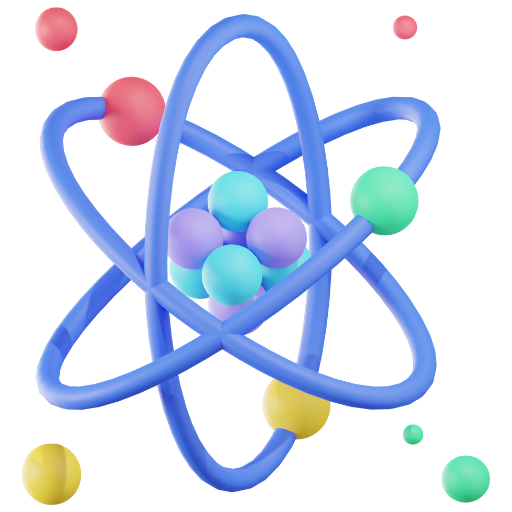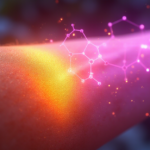Quantum memory preservation is a newly developed discipline investigating innovative methods to preserve cognitive information outside conventional biological limitations. By means of my multidisciplinary study, I have explored how quantum states could maintain cognitive patterns and human memories. The complicated quantum states connected with human consciousness can maybe be captured and preserved by advanced quantum storage technologies. Recent studies show hitherto unheard-of accuracy in storing and retrieving quantum information. By means of techniques to encode brain patterns into quantum states, scientists have opened possible routes for long-term memory preservation. The technique in innovative ways blends quantum physics with neurology. These quantum memory preservation methods could present answers for cognitive decline and memory loss. The studies throw doubt on our knowledge of information storage, memory, and consciousness. The field presents amazing opportunities for increasing human cognitive capacity.
Table of Contents
- Quantum Techniques for Memory Storage
- Preserving Consciousness Beyond Biology
- Future of Cognitive Information Technology
- Extra’s:
Quantum Techniques for Memory Storage
Imagine a time when our most priceless memories are safe, secure, and easily available, when memory loss is a thing of the past. That’s the fascinating promise of quantum memory preservation, a field fast transcending science fiction into reality. This is about investigating how we may employ the mind-bending ideas of quantum mechanics to preserve our memories rather than about producing a flawless brain duplicate. From our present understanding of memory and cognitive abilities, this is a significant departure. Therefore, advanced quantum storage techniques could help us to perhaps save our experiences. Our basic essence of identity might be safely kept instead of being subject to illness or time. Imagine if we could reverse our memories and make sure our life tales never really disappear. Actually, we are looking at how to use quantum states to record the complex ways we experience things and create a sort of digital backup. Not only is this advancement about honoring our past, but it also presents chances to improve our cognitive capacity going forward. That is incredible.
Early days of quantum memory preservation experimentation are here, and it’s amazing to see how far we have come already. We refer to this process as neural encoding, whereby we translate memories and ideas into quantum data. Basically, we aim to convert the intricate electrical and chemical impulses of our brain into a format compatible for storage using quantum physics. Accurate acquisition of this data by scientists opens the path for possible consciousness storage. Consider how cognitive preservation might affect disorders including Alzheimer’s. Could we perhaps assist those suffering with memory loss using this memory technology? This technology presents therapies and even enhancements to our cognitive abilities, thereby transforming our way of life. Long term memory storage systems are actively and continuously under investigation. We are approaching a day when memory loss and cognitive decline might not be unavoidable by stretching the bounds of quantum neuroscience and information science. This is about actual scientific progress challenging our preconceptions about what is feasible in consciousness research, not only a theoretical debate.
Preserving Consciousness Beyond Biology
No longer only a theory from science fiction, the notion of our thoughts existing outside the lifetime of our physical bodies is becoming a major focus of scientific inquiry. Investigating the intriguing realm of quantum memory preservation methods, which might provide a means of storing our ideas and experiences, are scientists Beyond only saving memories, this is about maintaining our unique consciousness—the fundamental core of who we are—above our biological constraints. Sometimes referred to as quantum neuroscience, this developing discipline is looking at how our brains create memories via intricate physical processes. Capturing these complex quantum information states that are tightly connected to our awareness and sustainably maintained is the aspirational target. Imagine a situation which a backup of your particular thought patterns exists; this could transform our understanding of life, death, and identity, hence stretching the bounds of what we now find feasible. We are discussing living well beyond our current conception, which opens fresh boundaries in knowledge of human potential.
Fundamentally, this study is based on the idea of neural encoding, which explains how human brains translate ideas into signals our computers could be able to understand and retain. Techniques to convert these intricate brain signals into quantum data, which might then be kept using cutting-edge quantum memory preservation technology, are under active development by scientists. Think through the possible effects for those with memory loss brought on by diseases like Alzheimer’s. With cognitive preservation methods applied in the future, neurodegenerative diseases could be either lessened or even reversed, therefore providing fresh hope for individuals impacted. This is about changing our perspective of the mind and its infinite possibilities, not only about attaining long-term memory storage. By means of consciousness research, the work under progress is clearing the path toward cognitive preservation, so transforming the future of human experience. These developments could transform our knowledge of life and awareness as well as bring about a new phase in human history.
Future of Cognitive Information Technology
Though advances in cognitive preservation are quickly turning the idea of conserving, improving, or even passing on our memories and cognitive skills from a dream into a realistic prospect. Investigating quantum memory preservation is stretching the bounds of what is practical in memory technology and making us ask whether we may possibly preserve the core of our own consciousness in addition to data. This brings us to the fascinating discipline of consciousness storage, which seeks to comprehend and protect the most complex features of our brains. In quantum neuroscience, scientists are exploring how to capture the unique quantum information that defines our individual selves, not only storing basic information but also delving into the deepest aspects of human identity and the complex quantum states related to our consciousness using innovative approaches. This will enable us to access and interpret our legacy, hence transforming brain data storage for next generations. Thinking about the ramifications this has for our conception of what it is to be human and how we may preserve that going forward is amazing.
Using modern quantum storage techniques will help us to transform the complicated electrical and chemical impulses of our brains into storable formats, therefore preserving our cognitive identities. Crucially, neural encoding offers a way to encode the complexity of memory and ideas for preservation and future enhancement. This could fundamentally alter our understanding of cognitive ability and provide cognitive enhancing approaches to perhaps treat memory loss and cognitive decline. With these new technology, picture the opportunities if we could increase memory, attention, and general brain capacity. With the rapid developments in consciousness research, cognitive preservation seems to be a very exciting field that might enable cognitive ability retention and memory preservation. With early preventative techniques, this can also open incredible new directions to cure diseases like Alzheimer’s. People could even be able to access their stored memories as readily as we use computer data, therefore offering new avenues for therapy and deeper self-awareness. Memory encoding strategies are about enhancing our cognitive skills and learning process, therefore enhancing the general quality of life for all, not only about preserving memories safety-wise.
Extra’s:
Delving into the realm of quantum possibilities, the concept of preserving human consciousness beyond biological constraints opens up exciting avenues for exploration. In this context, related areas of research offer valuable insights. For example, the potential to reconstruct lost civilizations through “Quantum Archaeology: Reconstructing Lost Civilizations Through Quantum Echoes” mirrors the ambition to safeguard and potentially revive human consciousness. Furthermore, understanding the complex interactions within our own bodies at a quantum level, as explored in “Quantum Microbiome Mapping: Decoding Bacterial Universes Within Us“, could also provide a deeper perspective on the nature of consciousness and its potential for storage. These areas highlight the interconnectedness of quantum research and its implications for our understanding of existence.
Expanding the scope of our discussion, several external resources can provide further insight into the challenges and potential of quantum memory. The theoretical underpinnings of representing quantum states with classical neural networks, as examined in “[2410.23152] When can classical neural networks represent quantum states?“, is essential to understanding the limitations and possibilities of storing complex information. Additionally, for a more detailed look into the hardware and practical aspects of quantum memory, “Designing a practical high-fidelity long-time quantum memory | Nature Communications” offers a valuable resource on the current state of research in this critical area of quantum technology. These resources offer an extended view of current research in quantum memory and provide a deeper context for the exploration of human consciousness preservation.












1 thought on “Quantum Memory Preservation: Storing Human Consciousness Beyond Biological Limits”